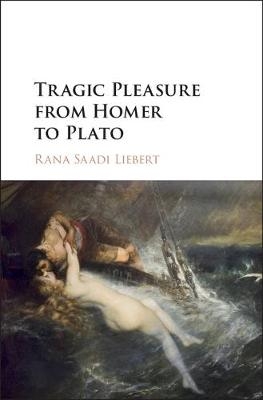
Tragic Pleasure from Homer to Plato
Seiten
2017
Cambridge University Press (Verlag)
978-1-107-18444-2 (ISBN)
Cambridge University Press (Verlag)
978-1-107-18444-2 (ISBN)
This book develops an embodied model of aesthetic engagement derived from Greek poetry and Plato's philosophy, and uses this model to resolve an intractable paradox in aesthetic theory: the appeal of tragedy. It will be of interest to classicists, philosophers, and scholars in other fields concerned with aesthetics and emotions.
This book offers a resolution of the paradox posed by the pleasure of tragedy by returning to its earliest articulations in archaic Greek poetry and its subsequent emergence as a philosophical problem in Plato's Republic. Socrates' claim that tragic poetry satisfies our 'hunger for tears' hearkens back to archaic conceptions of both poetry and mourning that suggest a common source of pleasure in the human appetite for heightened forms of emotional distress. By unearthing a psychosomatic model of aesthetic engagement implicit in archaic poetry and philosophically elaborated by Plato, this volume not only sheds new light on the Republic's notorious indictment of poetry, but also identifies rationally and ethically disinterested sources of value in our pursuit of aesthetic states. In doing so the book resolves an intractable paradox in aesthetic theory and human psychology: the appeal of painful emotions.
This book offers a resolution of the paradox posed by the pleasure of tragedy by returning to its earliest articulations in archaic Greek poetry and its subsequent emergence as a philosophical problem in Plato's Republic. Socrates' claim that tragic poetry satisfies our 'hunger for tears' hearkens back to archaic conceptions of both poetry and mourning that suggest a common source of pleasure in the human appetite for heightened forms of emotional distress. By unearthing a psychosomatic model of aesthetic engagement implicit in archaic poetry and philosophically elaborated by Plato, this volume not only sheds new light on the Republic's notorious indictment of poetry, but also identifies rationally and ethically disinterested sources of value in our pursuit of aesthetic states. In doing so the book resolves an intractable paradox in aesthetic theory and human psychology: the appeal of painful emotions.
Rana Saadi Liebert is a site director and faculty member of the Bard Prison Initiative, and a Visiting Assistant Professor of Classics at Bard College, New York. Her research focuses on the relationship between ethics and aesthetics in ancient literature and philosophy, ancient and modern theories of emotion, and the history of conceptualizing fiction.
Introduction: the pleasure of tragedy; 1. The taste of archaic poetry; 2. Emotional satisfaction in archaic poetry; 3. Tragic pleasure in Plato's Republic; Epilogue: poetry and privacy: towards an Aristotelian defense of poetry and a Platonic alternative.
| Erscheinungsdatum | 18.04.2017 |
|---|---|
| Zusatzinfo | Worked examples or Exercises |
| Verlagsort | Cambridge |
| Sprache | englisch |
| Maße | 157 x 235 mm |
| Gewicht | 470 g |
| Themenwelt | Literatur ► Anthologien |
| Geisteswissenschaften ► Philosophie ► Philosophie Altertum / Antike | |
| Geisteswissenschaften ► Psychologie | |
| Geisteswissenschaften ► Sprach- / Literaturwissenschaft ► Anglistik / Amerikanistik | |
| Geisteswissenschaften ► Sprach- / Literaturwissenschaft ► Literaturwissenschaft | |
| ISBN-10 | 1-107-18444-4 / 1107184444 |
| ISBN-13 | 978-1-107-18444-2 / 9781107184442 |
| Zustand | Neuware |
| Haben Sie eine Frage zum Produkt? |
Mehr entdecken
aus dem Bereich
aus dem Bereich
mit Sokrates, Seneca, Platon & Co. im Gespräch
Buch | Hardcover (2023)
FinanzBuch Verlag
18,00 €


